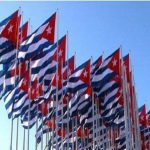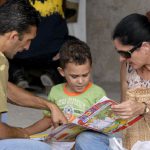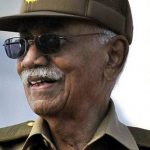On February 24, 1895, the fight against the Spanish oppression was restarted in Cuba, a necessary war.
After the end of the Ten Years, as described by notes of the time, Cuba was submerged in an economic crisis, tempered by the misappropriation of budgets and by a high and iron tax policy of the Spanish crown. The loss of economic control of the metropolis would increase the repression.
In the midst of such a complex situation, Martí proposed an alternative of deep political significance, the election of the general in chief of the liberation army, the Dominican Máximo Gómez, which was approved unanimously.
It was a general opinion among the emigrants and on the island that without the participation of the valuable warrior, the complete success of a new fight was impossible.
By assuming the task that the party placed in his hands, the general took on an essential task, summoning chiefs and officers who at some point were under his command and with them set in motion a military structure.
On his part, Martí would rely on the bases of the Cuban Revolutionary Party, a political tool that would guarantee the important process.
Along the way, disagreements arose on tactical aspects and there were moments of misunderstanding, but all difficulties were smoothed out by the force of shared principles.
This feat, although greater than that of 10 years, had once again the misfortune that errors of that campaign were repeated, such as the lack of unity among the military leaders.
The situation made it possible for the United States to find a gap to annihilate the representative organs of the Cuban nation, to this was added the loss of political and military leaders such as Antonio Maceo and José Martí, who perished on the battlefield.
The United States stalked like a tiger for 30 years, the struggle of the Cuban people and made an effort to seize the largest of the Antilles, which is expressed in the opportunistic move to prevent the entry of the Mambi troops to Santiago de Cuba and with the Treaty of Paris that put an end to the so-called Spanish-Cuban War.
The predictive capacity of the apostle, would be expressed in his work repeatedly “The scared tiger of the flash returns at night … you cannot hear him coming because he comes with velvet claws”, or in the allusion to the giant of the seven leagues contained in the essay Our America and a few hours after dying, in his testament letter to his friend Manuel Mercado
“Every day I am already in danger of giving my life for my country and for my duty, since I understand it and I have the courage to do so to prevent in time, with the independence of Cuba, the United States from spreading through the Antilles and fall, with that force more, on our lands of America. All I have done so far, and will do, is for that…”
Despite the restart of the war on February 24, 1895 and all its trajectory served as a teaching for later times from the political-military point of view, especially regarding the need for a single command and the importance of the factor that until today unity has guaranteed our sovereignty.






